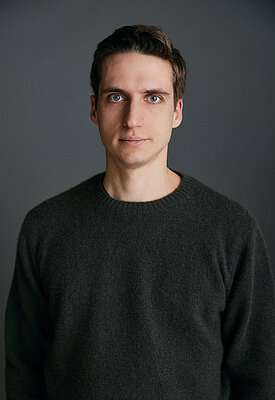Dr. Fabian Baumann
Researcher

Dr. Fabian Baumann
Researcher
| Office | RECET, Spitalgasse 2, Hof 1.1 |
|---|---|
| @Fabian__Baumann |
Fabian Baumann is a visiting postdoctoral researcher and holder of a Postdoc.Mobility grant from the Swiss National Science Foundation. Following studies in Geneva, Saint Petersburg, and Oxford, he completed his PhD in history at the University of Basel in 2020. From 2021 to 2022 he was a visiting postdoctoral fellow at the University of Chicago.
Research interests:
- History of Ukraine, Russia and East Central Europe
- Russian-Ukrainian relations in the 19th and 20th centuries
- Nationalism
- Empire
- Soviet nationality policies.
Current Research Projects:
Fabian Baumann's first book Dynasty Divided: A Family History of Russian and Ukrainian Nationalism will be published by NIU Press/Cornell University Press in August 2023. Tracing the story of the Shul’gin/Shul’hyn family, whose members included both Russian and Ukrainian nationalists, Dynasty Divided analyzes what prompted nineteenth-century intellectuals to identify with either one or another imagined community. Baumann argues that these men and women consciously chose a political position and only then began their self-fashioning as members of a national community, defying the notion of nationalism as a consequence of a pre-existing ethnicity. He is now working on a postdoctoral research project about “banal” forms of nationalism and the promotion of republican statehood in late Soviet Ukraine. Looking at state propaganda and statements by republican leaders, he asks how the political idiom of nationhood survived and changed during the 1970s, a period traditionally described as one of russification and denationalization.
Publications:
Nationality as Choice of Path: Iakov Shul’gin, Dmitrii Pikhno, and the Russian-Ukrainian Crossroads, Kritika: Explorations in Russian and Eurasian History 23, no. 4 (2022), 743–71.
Ein Folterlager im heutigen Europa, Republik, 3 January 2023.
Im Grenzland der Geschichte, Republik, 12 September 2022.
“Von Krieg zu Krieg: Historische Ukraineforschung seit 2014” Osteuropa 1–3 (2022), 309–18.
‘Anti-Russland’? Die Ukraine als politisches Projekt, Geschichte der Gegenwart, 6 April 2022.
Dragged into the Whirlwind: The Shul’gin Family, Kievlianin, and Kiev’s Russian Nationalist Movement in 1917.” In Korine Amacher and F. Benjamin Schenk et al., eds., Personal Trajectories in Russia’s War and Revolution (1914–1922). Biographical Itineraries, Individual Experiences, Autobiographical Reflections, Russia’s Great War & Revolution Series 9 (Bloomington: Slavica, 2021), 73–92.
Einseitiger Einheitswunsch – Putins neueste Geschichtslektion,” Religion & Gesellschaft in Ost und West 9 (2021), 3–5.
“Als Genf das Zentrum der Ukraine war,” NZZ Geschichte 1 (2021), 87–95.
Review of Olena Palko, Making Ukraine Soviet: Literature and Cultural Politics under Lenin and Stalin, History: The Journal of the Historical Association, vol. 107, no. 374, 2022, 188–190.
Review of Serhiy Bilenky, Imperial Urbanism in the Borderlands: Kyiv, 1800-1905, East/West Journal of Ukrainian Studies, vol. 6, no. 2, 2019, 231–233.
Geschichtspolitik mit dem Holzhammer, Geschichte der Gegenwart, 7 December 2016.